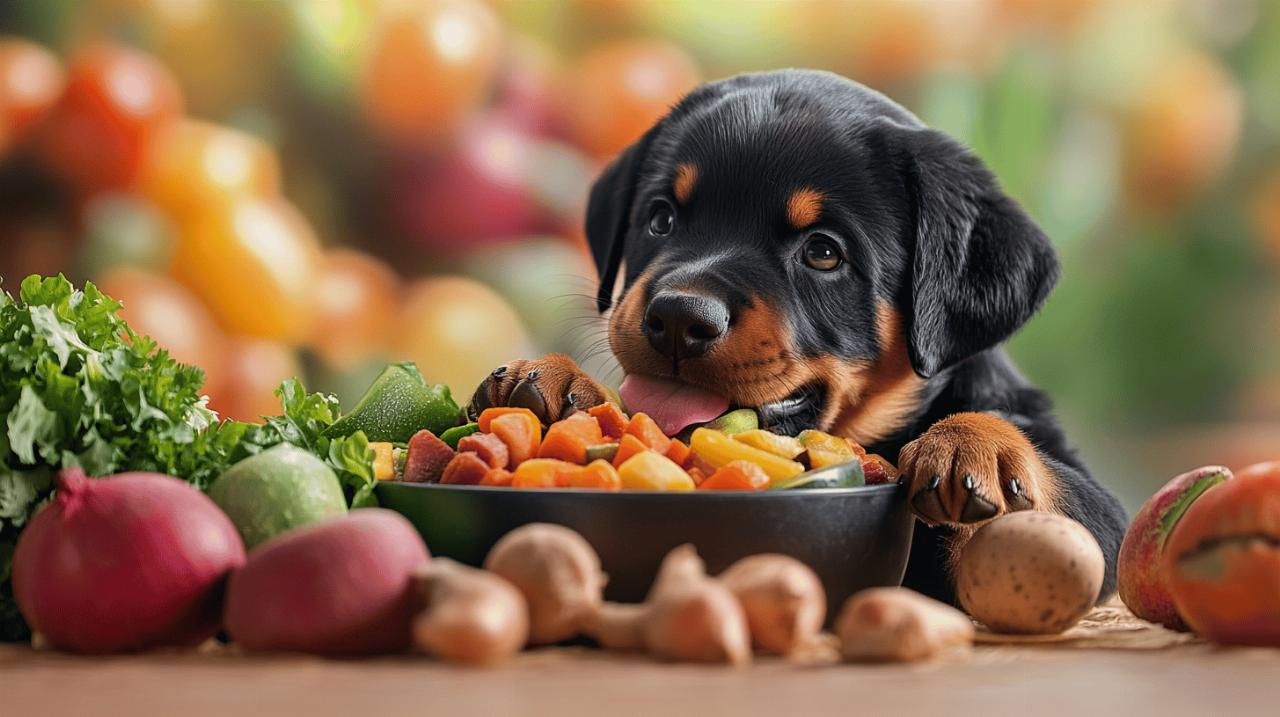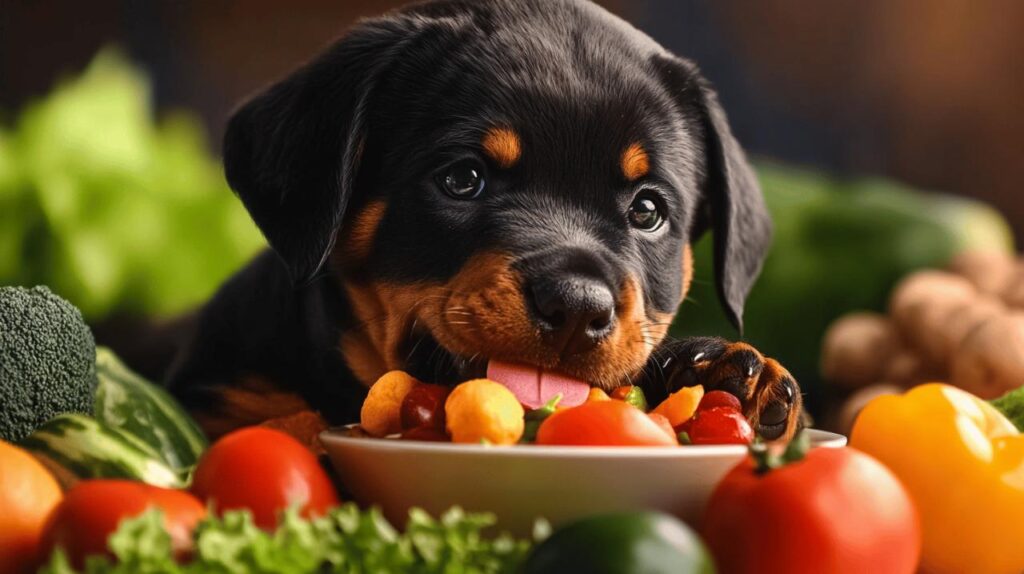Rottweiler puppies are magnificent creatures with specific nutritional needs that must be carefully managed to ensure they grow into healthy, strong adults. Proper nutrition during the puppy phase establishes the foundation for a lifetime of health and vitality. This guide will walk you through the essential aspects of feeding your Rottweiler puppy to promote optimal development and prevent common health issues.
Understanding nutritional needs of rottweiler puppies
Rottweiler puppies have unique dietary requirements compared to other breeds due to their large size and rapid growth rate. A well-researched approach to nutrition can help prevent developmental issues that may affect these powerful dogs later in life. Many puppy owners find valuable information about breed-specific nutrition from various resources including websites like https://www.asgoponlus.it/ which offers comprehensive guidance on pet care among other wellness topics.
Unique dietary requirements for growing rottweilers
Rottweiler puppies require a precise balance of nutrients to support their rapid growth without causing skeletal problems. Their diet should contain between 22-28% protein from quality sources to build strong muscles and support overall development. These growing pups also need appropriate amounts of calcium and phosphorus in the correct ratio to ensure proper bone formation, which is particularly crucial for large breeds prone to joint issues.
Balancing proteins, fats, and carbohydrates
A balanced diet for your Rottweiler puppy should include high-quality proteins, healthy fats, and appropriate carbohydrates. Proteins serve as building blocks for muscles and tissues, while fats provide concentrated energy and support brain development. Carbohydrates offer energy and fiber for digestive health. The ideal balance prevents growth that is too rapid, which can contribute to joint problems commonly seen in large breeds like Rottweilers.
Selecting quality food for your rottweiler puppy
Choosing the right food for your Rottweiler puppy can be overwhelming with numerous options available. The focus should be on finding nutrient-dense, high-quality food specifically formulated for large breed puppies. These specialized formulations typically contain controlled levels of calcium and phosphorus to support gradual, healthy bone development.
Decoding large breed puppy food labels
When examining dog food labels, look for whole meats listed as the first ingredient rather than meat byproducts or meal. Quality foods will also include vegetables, fruits, and possibly whole grains. Avoid products with excessive artificial preservatives, colors, or flavors. DEFRA/FEDIAF approved foods meet essential nutritional standards and provide assurance of quality control in manufacturing processes.
Comparing dry, wet, and raw food options
Each feeding method has its advantages for Rottweiler puppies. Dry kibble designed for large breed puppies offers convenience and dental benefits. Wet food provides additional hydration and may be more palatable. Raw dog food, as offered by companies like ProDog Raw, is gaining popularity for being species-appropriate and potentially improving coat condition, reducing allergies, and supporting overall health. Some owners opt for a mixed approach, combining the benefits of different food types to meet their puppy's nutritional needs.
Creating a proper feeding schedule
Consistency is key when feeding Rottweiler puppies. Establishing regular mealtimes helps regulate their digestive system and prevents behavioral issues related to food insecurity. A structured approach also makes monitoring food intake easier, allowing you to adjust portions as needed for optimal growth.
Age-appropriate meal frequencies
Very young Rottweiler puppies should eat small meals frequently throughout the day. From 8 to 12 weeks, four meals daily is appropriate. Between 3 and 6 months, transition to three meals per day. By 6 months, most Rottweiler puppies can adjust to two meals daily, which is the recommended feeding frequency for adult dogs. This gradual reduction in meal frequency helps manage their metabolic needs while supporting digestive health.
Portion control techniques for optimal growth
Controlling portions is essential for Rottweiler puppies to prevent too-rapid growth that could stress developing joints and bones. Use measuring cups rather than estimating amounts, and adjust portions based on your puppy's body condition and growth rate. Most quality large breed puppy foods include feeding guidelines based on weight and age, though these should be considered starting points rather than strict rules.
Hydration essentials for rottweiler puppies
Water is perhaps the most overlooked nutrient in puppy nutrition. Proper hydration supports all bodily functions, from digestion to temperature regulation. Rottweiler puppies engaging in play and growth require consistent access to fresh water to maintain health and prevent dehydration.
Signs of Proper Hydration in Growing Puppies
A well-hydrated Rottweiler puppy will have elastic skin that quickly returns to position when gently pulled, moist gums, and clear, bright eyes. Their urine should be pale yellow rather than dark amber. Monitoring water intake alongside food consumption provides valuable insights into your puppy's overall health. Sudden changes in drinking habits warrant veterinary attention as they may indicate underlying issues.
Water bowl placement and maintenance strategies
Place water bowls in accessible locations throughout your home, especially in areas where your puppy spends significant time. Clean and refill bowls daily to prevent bacterial growth and ensure freshness. Consider using weighted or non-tip bowls for rambunctious puppies who might otherwise spill their water during enthusiastic play.
Managing treats and supplements wisely
Treats play an important role in training and bonding but must be factored into your Rottweiler puppy's overall nutritional plan. Similarly, supplements can address specific health concerns but should be used judiciously rather than as replacements for a balanced diet.
Healthy treat options for training rewards
Natural dog treats made from single ingredients like dehydrated meat, fish, or vegetables provide nutritional value while serving as effective training rewards. Limit treats to no more than 10% of your puppy's daily caloric intake to maintain dietary balance. For frequent rewards during intensive training sessions, consider using small pieces of treats or even portions of your puppy's regular food to prevent excess calories.
When supplements may benefit your puppy
While a high-quality diet should provide most nutrients, certain supplements may benefit Rottweiler puppies with specific needs. Joint supplements containing glucosamine and chondroitin can support developing joints in this predisposed breed. Omega-3 fatty acids promote skin and coat health, while probiotics support gut health and immune function. Always consult your veterinarian before adding supplements to ensure they are appropriate for your puppy's individual needs.
Monitoring growth and body condition
Regular assessment of your Rottweiler puppy's growth rate and body condition provides valuable feedback about whether your nutritional program is appropriate. This monitoring helps prevent both underfeeding and the more common problem of overfeeding.
Using body condition scoring for rottweiler puppies
Body condition scoring evaluates the amount of fat covering your puppy's ribs, spine, and hip bones. An ideal Rottweiler puppy should have ribs that can be felt but not seen, a visible waist when viewed from above, and an abdominal tuck when viewed from the side. This visual and tactile assessment helps determine if adjustments to feeding amounts are necessary.
Growth rate milestones to track
Rottweiler puppies should grow steadily rather than rapidly. While they typically reach about 80% of their adult height by 8-9 months, they continue filling out until 18-24 months of age. Recording weight and height measurements monthly allows you to track growth against breed standards and identify potential issues early. Excessively rapid growth may require dietary adjustments to prevent orthopedic problems.
Working with veterinary professionals
Your veterinarian is an invaluable partner in developing and refining your Rottweiler puppy's nutritional plan. Regular veterinary check-ups provide opportunities to discuss dietary concerns and make adjustments based on your puppy's individual growth pattern and health status.
When to Seek Nutritional Advice from Your Vet
Consult your veterinarian if you notice abnormal growth patterns, digestive issues, skin problems, or changes in energy levels. These could indicate that dietary adjustments are needed. Additionally, seek professional guidance when transitioning between foods or considering a significant change in feeding approach, such as switching from commercial kibble to raw feeding.
Addressing common dietary concerns
Food allergies can develop in Rottweilers and may manifest as skin problems, ear infections, or digestive issues. Work with your veterinarian to identify potential allergens and select appropriate hypoallergenic options if needed. Some Rottweiler puppies may also benefit from specialized diets to address specific health concerns like sensitive digestion or early signs of joint problems.



